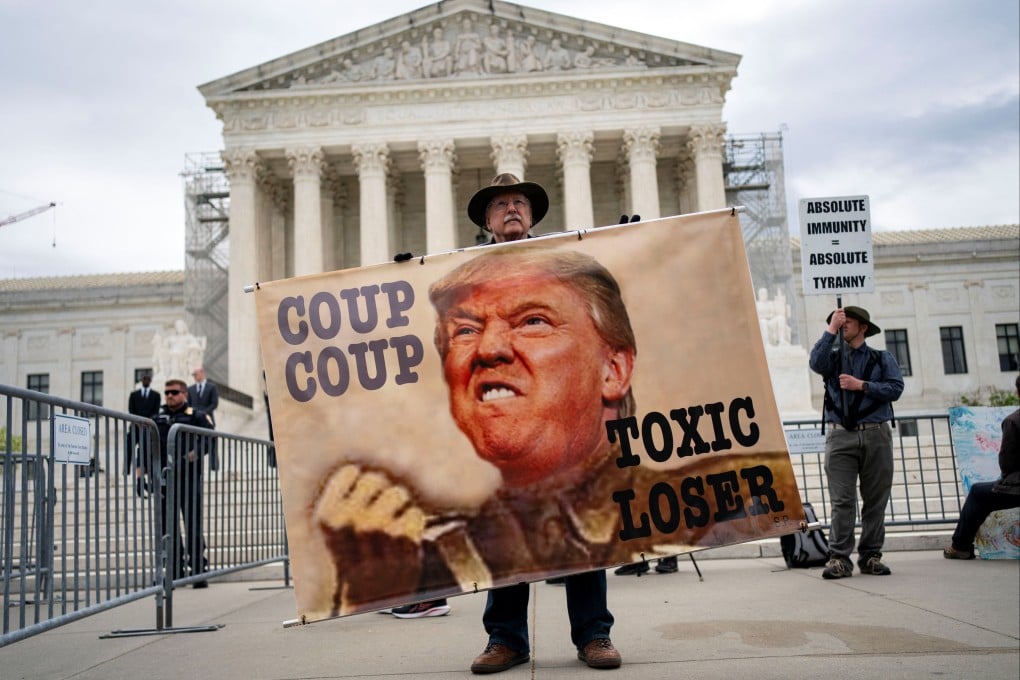US Supreme Court ruling on Trump’s presidential immunity claim due Monday
- Lower courts had rejected Trump’s request he should be shielded from 4 election-related criminal charges on the grounds he was serving as president

The Supreme Court’s ruling in Republican former President Donald Trump’s claim of immunity from prosecution for trying to undo his 2020 election loss is expected on Monday, the final day of its current term.
US Chief Justice John Roberts on Friday announced July 1 as the final day of the nine-member court’s current term, which began in October.
“At that time, we will announce all remaining opinions ready during this term of the court,” Roberts said from the bench on Friday.
The justices have yet to issue rulings in four cases that were argued during the term, including Trump’s appeal after lower courts rejected his request to be shielded from four election-related criminal charges on the grounds that he was serving as president when he took the actions that led to the indictment obtained by Special Counsel Jack Smith.
Other remaining cases involve Republican-backed laws in Florida and Texas meant to restrict the power of social media companies to curb content that the platforms deem objectionable, and a North Dakota convenience store’s challenge to a government regulation on debit card “swipe fees” – a case that could make it easier for businesses to try to undo long-standing federal rules.

During arguments in the Trump case in April the court’s conservative justices signalled support for former US presidents having some level of protection from criminal charges for certain acts that they had taken in office, but seemed unlikely to embrace Trump’s most far-reaching bid for “absolute immunity.”
